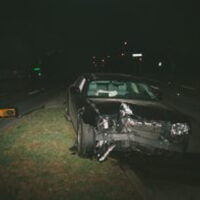Prop 213 and Car Accident Compensation in California

California voters passed Proposition 213 (Prop 213 or the Personal Responsibility Act of 1996) in the 1990s. When the law went into effect on November 6, 1996, it changed how uninsured motorists can receive compensation for damages after an auto accident. The law bars uninsured drivers from recovering compensation for general damages under some circumstances. General damages, which are also called noneconomic damages, may refer to pain and suffering, loss of consortium or other intangible losses.
Due to the changes created by the law, it is extremely important to determine how compensation works after a collision that results in deaths or injuries.
How Prop 213 Can Affect Your Car Accident Claim
Under Proposition 213, you may not be able to claim general damages after a car accident if you do not have auto insurance in accordance with California state law. However, there are exceptions to the rule.
- Passengers of the uninsured motorist can receive general damages. Proposition 213 only applies to drivers.
- Uninsured motorists cannot recover general damages for a wreck if they are driving under the influence and receive a conviction, even if they are not at fault.
- Uninsured motorists can still collect compensation for medical bills and other tangible damages.
- Uninsured motorists cannot collect compensation for general damages, even when not at fault for the accident.
- You cannot recover compensation for general damages if you were in the act of committing a felony.
Some uninsured drivers may not realize they lack insurance. For instance, if a person’s coverage lapses without his or her knowledge, that person may not realize they are no longer a policyholder.
Exceptions to Prop 213 in California
Fortunately, there are exceptions to Proposition 213. The exceptions to Proposition 213 after a car crash are listed below
- There are situations where a driver could be operating an employer’s vehicle, and that vehicle lacks insurance coverage. In such a case, the person may be able to recover for general damages.
- Proposition 213 does not cover private roads. As a result, there may be cases where an uninsured motorist can recover general damages after an accident on a private road.
- A motorist can recover general damages if he or she has insurance coverage, but then borrows a vehicle without insurance and gets into a wreck.
Why Does Prop 213 Matter?
Certain types of accidents may lead to horrific physical and emotional injuries. For instance, a person with severe disfigurements will likely suffer from intangible damages as well, such as the loss of enjoyment of life or loss of consortium.
General damages allow you to recover a greater amount of overall compensation for your claim. Without compensation for general damages, you will likely not receive enough to truly set your life back on track.
Always make sure you have adequate auto insurance coverage.
Why You Should Speak to a California Car Accident Attorney
You should speak to a car accident attorney if you or a loved one suffered harm in an auto accident. Proposition 213 is only one example of why the rules for getting compensation may be complicated. An attorney with extensive experience can look at your situation and determine whether you are eligible to recover compensation for your all of your damages.
Mary Alexander & Associates P.C. is a San Francisco personal injury law firm with decades of experience handling injury claims. Contact us at (415) 433-4440 or use our online case review form to schedule a free consultation with one of our car accident attorneys.
